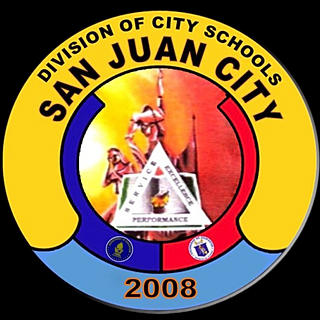"Bridging Learning Gaps Through Different Programs of WCES Stakeholders”
- DepEd San Juan City
- Jul 6, 2023
- 3 min read
The educational panorama is ever-evolving, and with it comes the recognition of the importance of addressing learning gaps. Learning gaps talk over with the disparities in knowledge, abilities, and academic performance among learners. Those gaps can arise due to various factors including individual differences, socioeconomic backgrounds, and insufficient educational resources.
Recognizing the significance of bridging these gaps, West Crame Elementary School (WCES) stakeholders from special sectors have taken up the obligation to increase and put into effect programs aimed at addressing literacy and numeracy disparities. By means of pooling their sources, knowledge, and impact, these stakeholders have become instrumental in developing impactful projects that may definitely influence learners’ learning outcomes.
WCES developed a variety of initiatives to address the learning gaps caused by the COVID-19 pandemic. Learning gaps are progressively reduced through the active participation of various stakeholders composed of teachers, the principal, staff, GPTAs, parents, government employees, and other significant people.
Kaya Kong Bumasa Project (KKB) is a reading program introduced by Mrs. Ruscel Paguirigan (Filipino Subject Coordinator) and Ms. Maria Roma C. Ocale (English Subject Coordinator). KKB is a continuous reading program intended to make struggling readers to be proficient readers and at the same time, promote healthy independent reading habits among pupils. This project is expected to equip pupils with necessary reading materials conducted by the person in charge and guided by selected teachers in each grade level.
The involvement of supportive stakeholders and collaboration among teachers made this project possible. PLT Arnel D. Hawthorne gave donations to support our Reading Intervention and produce more reading materials like additional reading books, tarpaulins, and flash cards.
On the other hand, teachers’ creativity and love for reading encourage them to make interactive reading materials such as MC Crame Word Fries, flashcards, sliders, and other interactive reading materials that are widely used during reading intervention. The use of these materials helps non-readers learn how to read and gradually love reading while having fun.
Another project that manages the numeracy skills of learners is the Project MATH-TATAG or Mathematical Tasks At TOFAS Accelerating Goals by Sir Kevin G. Gabaldon, Math Subject Coordinator. This project seeks to assist struggling learners in Grades III-VI who have received TOFAS (Test of Fundamental Academic Skills) results in order to accelerate their mathematics computational skills. This project will strengthen learners' confidence in their abilities to solve mathematical operations by increasing their proficiency in computational skills based on their level.
Intensifying reading corners led by the School Librarian, Ma’am Maria Josephine Oxida, are also mandated in every classroom. These Reading Corners aim to foster love for reading, enhance reading skills, promote independent learning, and establish a positive classroom culture. Through this program, teachers can empower pupils to become lifelong learners and enthusiastic readers.
Mr. Rovillio A. Nolasco, the School Learning Resource Coordinator, also built an E-Learning Portal to address the shortage of reading and learning materials. The WCES Portal is essential for learners because it provides accessible, flexible, and individualized learning experiences. It provides a variety of learning resources such as modules, worksheets, reading materials, and video sessions to help learners get the skills and knowledge they need.
The school facilities have been improved with the assistance of the San Juan City Local Government Unit. Mayor of San Juan City, Hon. Francisco Zamora provided free tablets to all learners. Smart televisions were also installed in all function rooms and classrooms. Internet connectivity is also provided to learners and staff both at school and at home. Ms. Vhia Padilla, Mr. Anthony James Vizmanos, and the division's Learning Resource Supervisor, Dr. Jonas Feliciano Domingo, also provided additional reading materials and technical assistance to improve the Learning Resources of the school.
Indeed, solid cooperation between schools and their stakeholders is essential to reduce learning gaps, improving educational outcomes, holistic learning development, and community participation. When individuals in schools and communities collaborate, they create a supportive, inclusive, and empowering atmosphere in which learners realize their potential and the fabric of the community as a whole, is strengthened.
Written by:
ROVILLIO A. NOLASCO
Teacher I - West Crame Elementary School


















































Comments